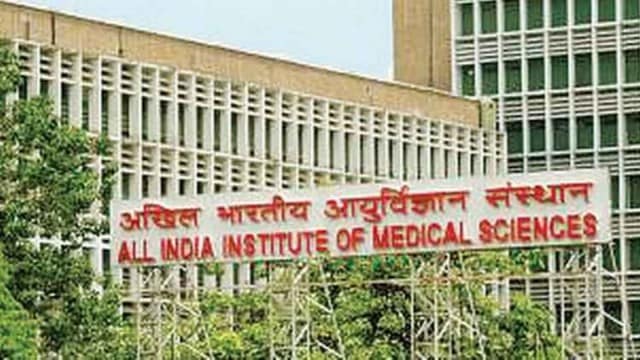Footfall of 50L in OPD, 3 lakh admissions, reliance on AI, renewable power: Director hails AIIMS on I-Day
Under the drug de-addiction programme and National Action Plan for Drug Demand Reduction, Dr Srinivas said, the hospital offered support to 25 drug treatment clinics and 73 addiction treatment facilities across 20 states in the country.
 Dr Srinivas added that the hospital infrastructure has been upgraded with solar energy, water recycling, and carbon accounting systems.
Dr Srinivas added that the hospital infrastructure has been upgraded with solar energy, water recycling, and carbon accounting systems. The All India Institute Of Medical Sciences (AIIMS) in Delhi has so far this year registered a footfall of around 50 lakh patients in the outpatient department (OPD), 3.5 lakh admissions in the inpatient department (IPD) and has conducted nearly three lakh surgeries, Director Dr M Srinivas said on Friday in his Independence Day address. The Director added that the institute received an approval rating of 95% through an indigenously developed app called SANTUSHT.
Dr Srinivas added that the hospital infrastructure has been upgraded with solar energy, water recycling, and carbon accounting systems. AI-powered diagnostics and predictive analytics have been introduced to personalise care and optimise resource utilisation, the Director asserted. AIIMS also helped incubate 26 medical start-ups through the Centre for medical innovation and entrepreneurship, Dr Srinivas said, noting that the institute also published over 4,000 peer-reviewed articles.
“By launching the digital learning hub and conducting 123 examinations for over 11 lakh candidates, AIIMS Delhi became one-of-a-kind institution in India to achieve blockchain deployment for examination records,” he said.
Under the drug de-addiction programme and National Action Plan for Drug Demand Reduction, Dr Srinivas said, the hospital offered support to 25 drug treatment clinics and 73 addiction treatment facilities across 20 states in the country. He added that the institute also trained 1,379 professionals to tackle the issue of drug addiction.
Highlighting the institute’s achievements, Dr Srinivas said, “AIIMS Delhi increased capacity for critical care by conducting over 15,000 MRIs, and set up India’s first HIV Drug Resistance Testing Laboratory approved by National AIDS Control Organisation (NACO).”
Work on indigenous bioengineered corneal implants was initiated under the Retinomics Facility at Dr RP Centre for Ophthalmic Sciences.
He underlined that the institute also set up Interdisciplinary Centres of Excellence to bridge medicine, engineering, and data science to bring forth holistic innovation in the medical sector.







